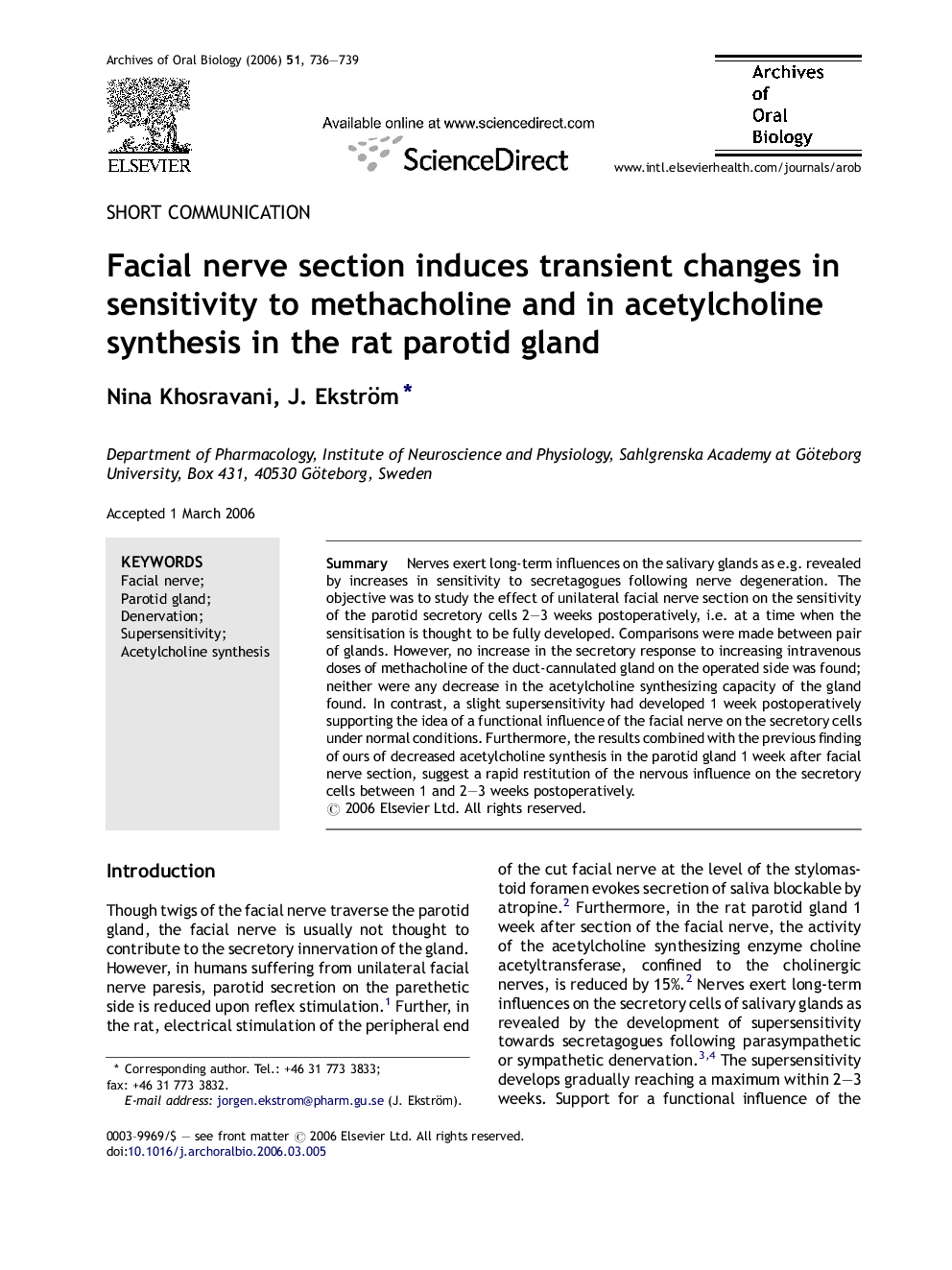| Article ID | Journal | Published Year | Pages | File Type |
|---|---|---|---|---|
| 3121332 | Archives of Oral Biology | 2006 | 4 Pages |
SummaryNerves exert long-term influences on the salivary glands as e.g. revealed by increases in sensitivity to secretagogues following nerve degeneration. The objective was to study the effect of unilateral facial nerve section on the sensitivity of the parotid secretory cells 2–3 weeks postoperatively, i.e. at a time when the sensitisation is thought to be fully developed. Comparisons were made between pair of glands. However, no increase in the secretory response to increasing intravenous doses of methacholine of the duct-cannulated gland on the operated side was found; neither were any decrease in the acetylcholine synthesizing capacity of the gland found. In contrast, a slight supersensitivity had developed 1 week postoperatively supporting the idea of a functional influence of the facial nerve on the secretory cells under normal conditions. Furthermore, the results combined with the previous finding of ours of decreased acetylcholine synthesis in the parotid gland 1 week after facial nerve section, suggest a rapid restitution of the nervous influence on the secretory cells between 1 and 2–3 weeks postoperatively.
